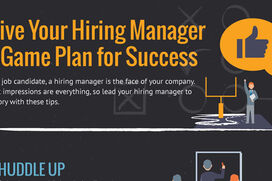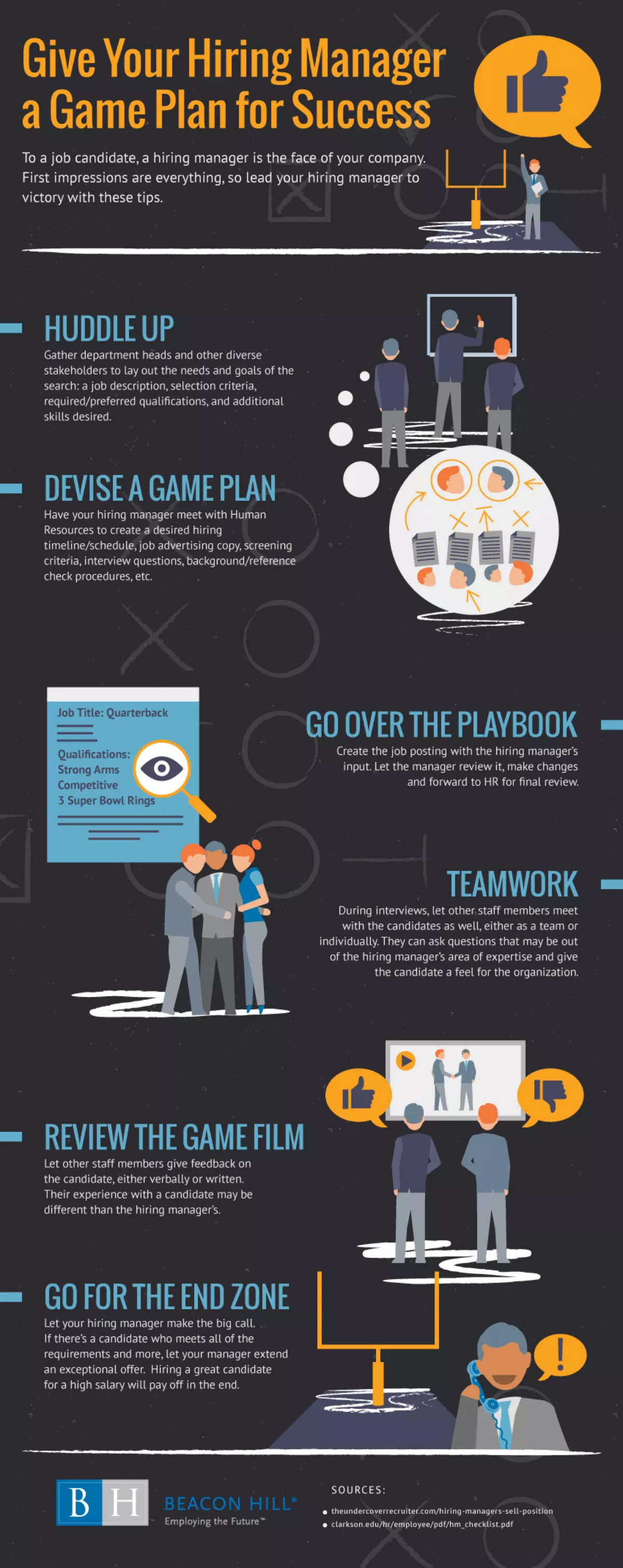
Give Your Hiring Manager a Game Plan for Success
Hiring a new employee is a significant step for any organization - big or small. And if a hiring manager ends up making the wrong call by choosing an unsuitable candidate, the whole affair can end up being an alarmingly expensive waste of time. Indeed, LinkedIn reported that a bad hiring decision can end up costing a company around 30 percent of that employee's annual salary. Furthermore, if the bad hire is employed in the C-Suite, the cost can be even more - estimates suggest that the cost of replacing an executive can exceed $40,000.
That's why it's imperative to make the right hiring decision the first time around. Check out the list below of five quick tips for avoiding a bad hire:

1. Create a detailed job advertisement
Hiring managers and human resources executives should strategize on nailing down the exact details and requirements for the position in question - including a description of every duty expected, required educational background and qualifications, Entrepreneur advised. The more clear concise your job posting is, the less chance that you'll be presented with unqualified applicants.
2. Conduct a thorough background check
Some organizations opt out of an extensive background check process - after all it can be time-consuming and expensive. But this is a bad move. A comprehensive background check - involving reviews of criminal history, educational experience and references - is vital for raising any red flags that could lead to a bad hire. A background check may be a chore in the short term, but it will pay off in the long run.
3. Consider a pre-employment assessment
According to LinkedIn, a behavioral pre-employment test can provide useful data-based information that will help narrow down a pool of candidates. This is especially useful given that in today's economy, many qualified candidates are often vying for the same position.
4. Ask the right questions
Arguably the most important stage of the recruitment process is the in-person interview. This is because, according to Fast Company, nearly 70 percent of bad hiring decisions can be attributed to poor interview questions. It's essential, therefore, to prepare beforehand, LinkedIn asserted. Review the candidate's resume in detail and then prepare a list of useful questions. The objective is to find out as much as possible about the candidate, so tailor the questions to ensure that you will get the very best responses. Another effective strategy is to bring one or two other recruiters into the interview with you. They can add value by asking their own questions and making a note of anything that you may have missed.
5. Provide effective training
Once a candidate is on board, the first couple of months are key to
ensuring that they adjust properly to office life and the demands of the
new position. The most effective way to do this is to implement a
comprehensive onboarding strategy. Train the candidate as much as
possible and make sure that you're available to help them when needed.
Entrepreneur also advised that hiring managers should be paying close
attention to the candidate's performance during this time - is she
settling in okay? Is she meeting goals and objectives? It's important to
catch any problems early on before they evolve into something
unmanageable.
 Back to Top
Back to Top